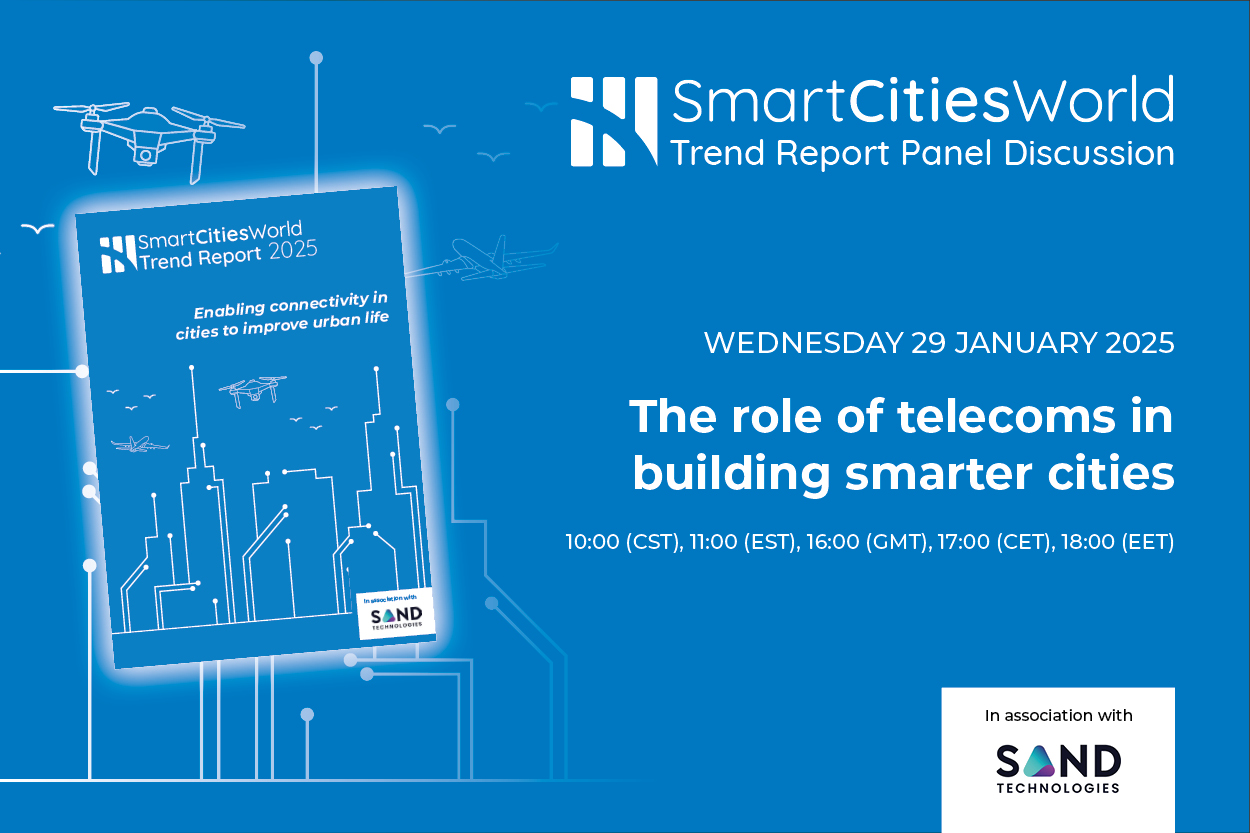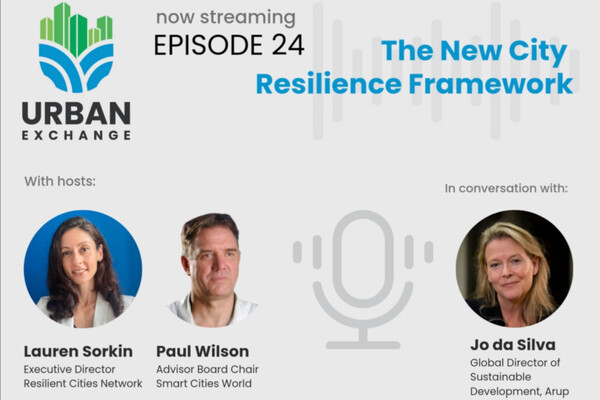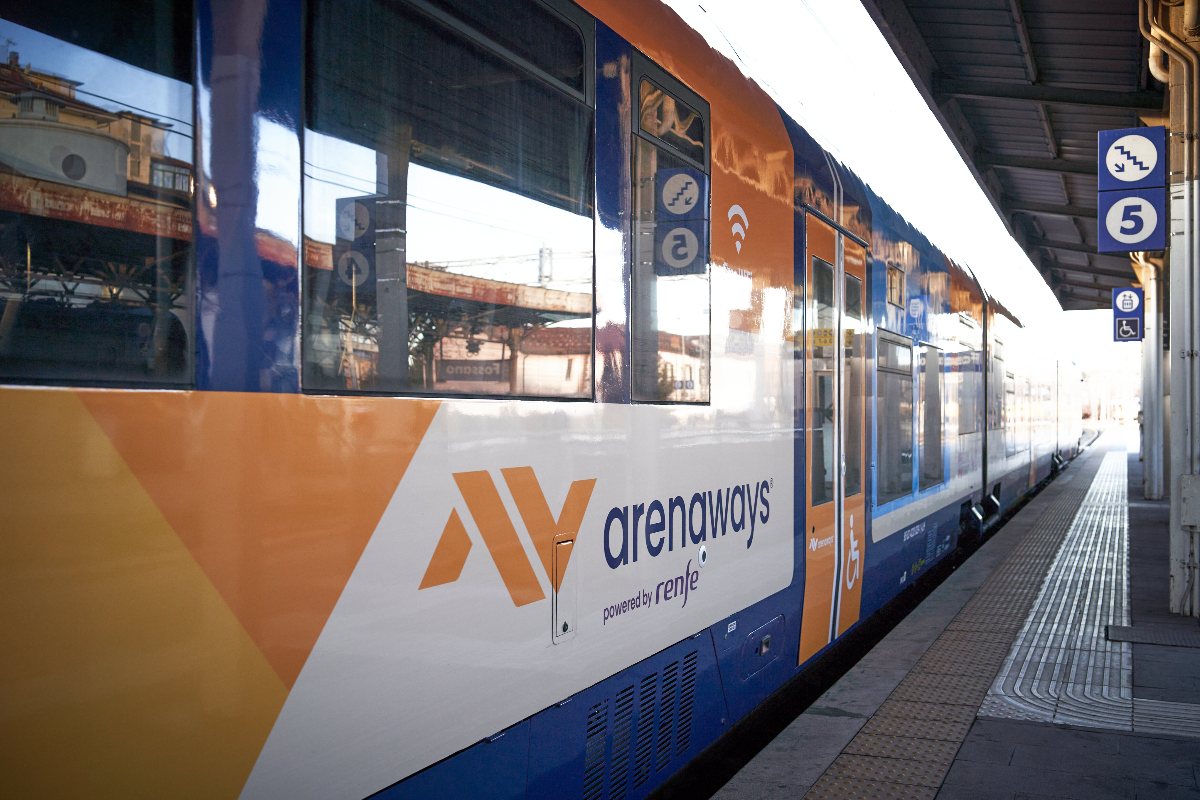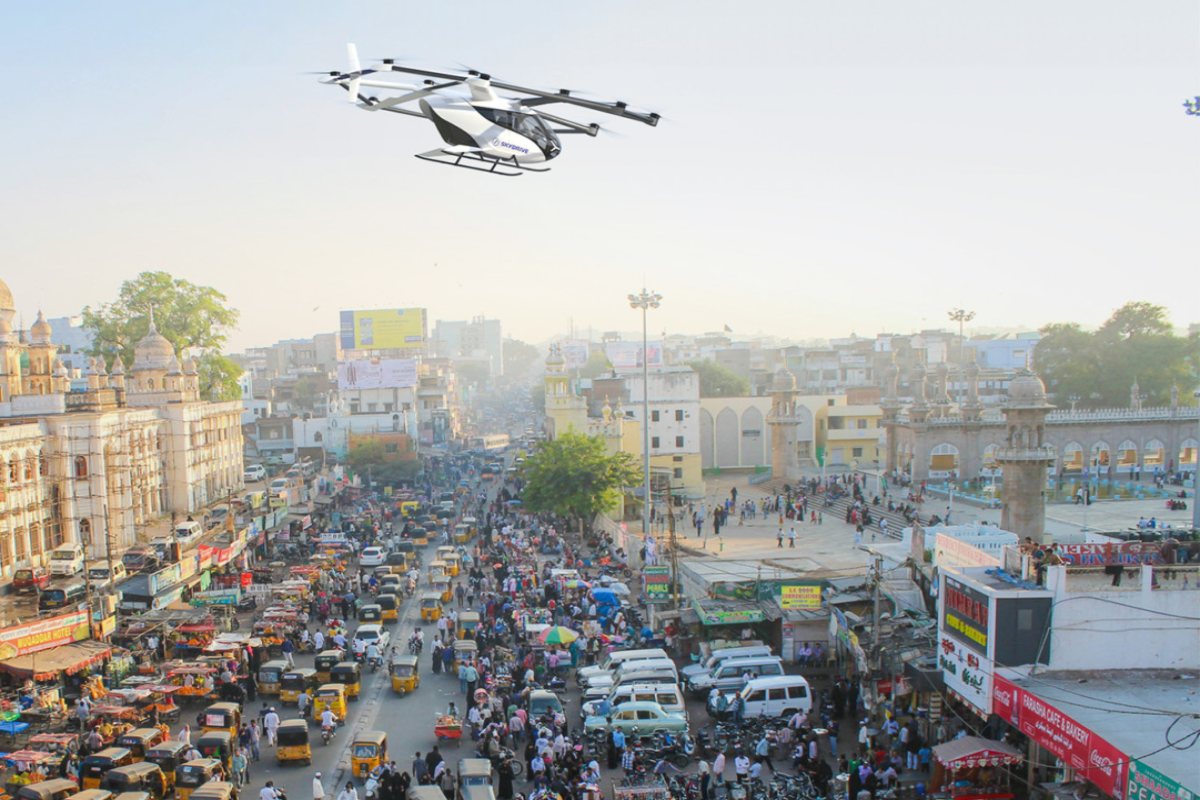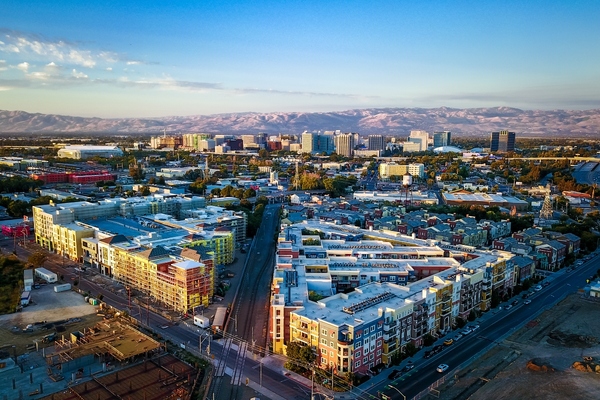Special Reports
SusHi Tech Tokyo 2024: experience ‘Tokyo 2050’ todaySponsored by The SusHi Tech Tokyo 2024 Showcase Program Executive Committee
Blockchain: Hype, hope and growing up in public
A recent Smart Cities World event looked at where things currently stand with blockchain for smarter cities and how we proceed from here.

At our recent Smart Cities World event at City Hall in London, we were focused on how blockchain could help to deliver smarter cities. Over 50 delegates, expert panellists and our keynote speaker gathered together to discuss blockchain’s potential, debate its risks and limitations, and get those burning questions out in the open.
From the research we carried out to set the scene for the event, it was clear that at this stage blockchain still raises just as many questions as answers, and many of them are quite fundamental.
In our survey of almost 200 respondents, including city representatives, technology companies and academics, 80 per cent said they understand blockchain well or fairly well (13 per cent said they don’t get it at all and only 6 per cent consider themselves experts). However, concerns about understanding the technology still rated as the number-one blocker to implementation.
Believe the hype?
So that’s where we started with our panel debate, asking: Why is there so much hype about blockchain, and why is it so tricky to wrap our heads around it?
David Siegel, CEO of the Pillar Project and keynote at the event, said: “It’s hard.”
“We’re still at proof of concept level in many cases,” he explained. “We do have some functioning systems – not many. But what we don’t have is reasonable consumer user interfaces that normal people can understand without being total geeks. This is the mission of the Pillar Project – to create a simple, easy-to-use consumer interface and hide all the complexity.”
During his keynote presentation, Siegel explained more about this as well as some of the basics of cryptocurrencies, smart contracts, token economics and blockchain. Watch it again here.
Jon Ferris is Strategy Director at Electron, which is using blockchain to advance the shared infrastructure of the energy markets.
He commented: “A year and a half ago, the biggest problem we had engaging with the energy industry was that no one had heard of blockchain. In the last six months, the biggest problem we’ve had is that everyone seems to have heard of blockchain. There are a lot of misunderstandings and misconceptions around what it can do. That’s given a lot of attention but it’s not necessarily that helpful at this stage in the lifecycle.”
In the last six months, the biggest problem we’ve had is that everyone seems to have heard of blockchain. There are a lot of misunderstandings and misconceptions around what it can do.
Ferris compared it to the emergence of the Internet – although it went mainstream in the late ’90s, “at that point the Internet was 20 years into its gestation,” he said.
“Where we are now with blockchain; it hasn’t had that period of development under the radar to reach a level of maturity. It’s been thrust into the limelight and it’s having to grow up in public. I think that’s the challenge of managing expectations.”
It’s crucial to get past blockchain’s hype – both negative and positive – if we’re going to get anywhere, said Charles Carter, senior technologist at Transport Systems Catapult. “It really is transformational technology; it’s a technological marvel that can disrupt many areas – in all sectors actually,” he commented.
Siegel believes that for now getting over the hype and towards implementation will be like popping corn . “[It will be] one by one,” he said. “One cool little application that people want at a time."
Hope
Despite the fundamental questions people still have about blockchain, 77 per cent of respondents to our survey said they still believe that blockchain is more hope than hype for solving urban challenges in cities.
However, 25 per cent said they have ‘no idea’ how it could be used to deliver smarter cities, and this rises to 40 per cent for city respondents. Thankfully, some of our survey respondents and our panellists and delegates did see some clear areas of opportunity.
The survey highlighted a number of spheres where blockchain could be applied for smarter cities, including: governance/city administration (63 per cent); citizen engagement/e-voting (52 per cent); transport (44 per cent); energy; (38 per cent); health (38 per cent); and public safety (32 per cent). The expected benefits include more efficient operations; improved citizen engagement/trust; stronger security; cost savings; environmental/energy benefits; improved traffic; and health impacts.
A common theme throughout the event discussion was that blockchain can help to co-ordinate fragmented systems made up of different parties that don’t necessarily trust each other, so that they can transact for the good of the whole.
Stephen Lorimer, Smart London Strategy and Delivery Officer, Greater London Authority, highlighted potential around better data sharing and collaboration between London’s 32 boroughs.
Lorimer said: “One of the problems that we have in London is because of the fragmentation of government and the way the services are delivered, business transformation and digital transformation is very difficult to scale. [Blockchain] is an example of the kind of technology that [can offer] ‘uniformity but not conformity’. This is the kind of technology which enables us to set rules of the game, of how you collect data, be consistent about the way that you share it, about the security standards.”
He also noted a possible opportunity around helping homeless people – through helping them verify their identity to access various government services, even via different local authorities – something which can now be onerous and difficult. Initiatives such as this have been launched in New York and Austin, for example.
The issue of trust would be critical, though, Lorimer noted. “The question from a lot of people is who are you sharing [data] with, but also who are you not sharing it with? In the case of people who are homeless, how do we show that we’re not sharing it with the immigration services?”
Concerns about this issue were raised, for example, following the Grenfell Tower fire tragedy in London.
“We have a lot of trust to make up,” Lorimer said.
Personal data
One of the great areas of hope for blockchain is giving individuals greater control of their personal data, who it is shared with and for what purpose. If personal data management can be proven, this could allow cities to do a lot more with citizens’ data in the future, with their consent.
However, concerns came up throughout the day about another much-touted benefit of blockchain – that the information stored on it is ‘immutable’. There are still big questions about what this means in the light of GDPR legislation, the right to be forgotten, sensitive information and more.
One of the great areas of hope for blockchain is giving individuals greater control of their personal data, who it is shared with and for what purpose.
On the governance roundtable, delegates discussed how blockchain could encourage citizens to participate more in city decision-making. This is something the City of Moscow is trying out through its Active Citizen e-voting platform. Moscow recently incorporated blockchain into the platform to increase trust and transparency.
In an era of concerns about fake news and data manipulation, blockchain could also allow citizens to feel better informed about such decisions through verifying information. The City of Vienna, for example, is using blockchain to automate and validate open government data, allowing city employees as well as citizens to review documents’ authenticity, when they were created, and when and if the data was modified.
Transport: Cutting out the middle man
Cutting congestion and pollution is a high priority for many cities. Charles Carter explained how blockchain could underpin mobility as a service (MaaS), enabling us to seamlessly travel from A to B via any mode, thus – in theory – reducing the need for personal vehicle ownership and allowing capacity to be used more efficiently.
“There are a lot of issues with [MaaS] currently,” Carter explained. “Operators don’t necessarily want to be aggregated; they don’t want to have the relationship taken away from them. Blockchain can remove that intermediary. You can have have more of a community or network of transport providers and operators – and they can be from very small to very large, operating a system that has no single for-profit control. That’s really exciting.”
“I don’t think we’re going to see mobility as a service unless we have [democratisation] via blockchain,” he said. It could facilitate car-sharing on a greater scale too, he added. More detail is available in the Transport Systems Catapult whitepaper, Are you decentralised yet?
“I don’t think we’re going to see mobility as a service unless we have [democratisation] via blockchain."
Lorimer mapped this idea to London’s subsidised transport service, where boroughs, education authorities, academies and the NHS typically operate their own systems for those who need transport support to access services.
“All of this costs huge amounts of money,” Lorimer said, noting that a technology such as blockchain could enable an MaaS approach to this, cutting inefficiencies.
Seigel highlighted another example in the sharing economy. Bird, for example, has crowdsourced the charging of its electric scooters, with riders getting rewards for charging them overnight at their homes.
“What if the government or a non-profit were to open source this?” Siegel said. “All you need is a common token standard and now anybody, even one person, could put one scooter into that network and have one scooter’s worth of economics or 10, or 20. Build it so that you don’t need the Bird app that only sees Bird scooters and the other app that only sees the other scooters.
“For every industry we could have these fundamental tokens that foster competition and open source the playing field so that everyone can participate and compete and no monopolies,” he said. “That could be a big deal.”
On the theme of removing the middle man, during the roundtable discussions delegates also mulled over how blockchain could make city councils into more decentralised autonomous organisations (DAOs), perhaps fundamentally changing the role (and number) of civil servants in the future.
Excess and efficiency
Delegates on the transport roundtable suggested that blockchain could simplify parking-related issues, with one local authority leader noting that the administration of this is currently a major challenge. Blockchain could make it cheaper to issue permits, manage them and issue fines using smart contracts, the delegates said.
In the area of energy, Ferris emphasised the massive potential to deploy blockchain to make better use of the excess to run systems more efficiently.
“If you carry on with the model we’ve had in the past, there’s a huge cost – a huge investment in large-scale power stations and the grid,” he said. “The system doesn’t have to work like that. It can be made cheaper, more efficient for everyone but particularly those people that are able to contribute to balancing the system.”
He added: “We’ll see higher demand from electric vehicles so there’s a crossover with good transport and needing to co-ordinate that across sectors for overall efficiency. It is a huge opportunity.”
Reimagining cities
We concluded that blockchain could play a significant role in delivering smarter cities but it’s very early days. There is still a real need to find better ways to explain blockchain technology and prove its benefits.
As one participant noted, for governments and cities to take advantage of the true potential of any technology, they need to start by reimagining the way they do things before looking at how different tools can help them achieve this. And that, of course, is the hardest part.
